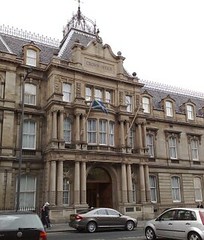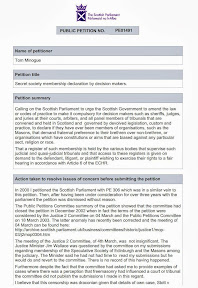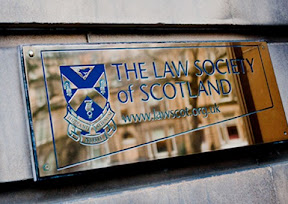 Convicted £10m tax cheat skipped £100m Lord Advocate after sentence deal collapsed. INFIGHTING between prosecutors, Police & tax officials over who could take public credit for jailing convicted tax cheat Michael Voudouri allowed the fraudster to easily flee Scotland after the collapse of a secret lighter sentencing deal done with Scotland’s £100m a year Crown Office & Procurator Fiscal Service (COPFS).
Convicted £10m tax cheat skipped £100m Lord Advocate after sentence deal collapsed. INFIGHTING between prosecutors, Police & tax officials over who could take public credit for jailing convicted tax cheat Michael Voudouri allowed the fraudster to easily flee Scotland after the collapse of a secret lighter sentencing deal done with Scotland’s £100m a year Crown Office & Procurator Fiscal Service (COPFS).
The bizarre inter agency wrangling over bonuses, promotions, and even squabbles over the final wording of public statements after Voudouri was safely behind bars, came to light in a leak detailing the bitter recriminations being played out between the agencies who wanted to claim credit for putting Voudouri in jail.
In communications seen by journalists, several key players in the prosecution openly touted for promotions accompanied by higher salaries while others suggested they were “due bonuses for bringing the tax fraudster to justice”.
However, UK tax officials are said to have taken a dim view of the way the Crown Office handled the prosecution and poor presentation of evidence which led to prosecutors being forced to accept a guilty plea for much lesser amounts of fraud than had been alleged after thorough and hugely expensive investigations.
One tax insider branded the Crown Office handling prosecution as being so bad, that he felt such tax avoidance cases should be prosecuted in England & Wales by the Crown Prosecution Service, writing that the “Scottish Crown Office appeared to be riddled with strutting peacocks”.
Voudouri, who skipped bail after being found guilty, is thought to have fled to Cyprus, where newspapers tracked him down to various properties although he has since fled addresses in Cyprus attributed to him at the time.
At the heart of the case which led to the conviction of Voudouri was Q-Tech distribution, a company said to have made a fortune by claiming back VAT on false Europe-wide business transactions in a scam known as carousel fraud.
Prosecutors from the Crown Office said Voudouri was involved in funds being concealed and "removed from the jurisdiction of the Scottish Courts".
He set up bank accounts in Greece and Cyprus as well as limited companies across the globe to keep the cash away from the authorities.
Voudouri had been accused of laundering a total of £48.2m of money from Q-Tech. But the Crown accepted a guilty plea after the sum was reduced to £10.3m. He was bailed but failed to turn up for sentencing in November. Judge Lord Tyre immediately issued a warrant for his arrest after lawyer Vincent Belmonte said he had no way of contacting his client.
Voudouri was jailed for four years in 2004 when he admitted a £3m VAT scam although he was suspected of stealing 10 times that amount. He also admitted a separate charge of hiding £1.2m of dirty cash while he was serving a sentence in HMP Glenochil.
In June, a Proceeds of Crime recovery case against Voudouri had to be postponed for six months at the High Court in Edinburgh after the Crown admitted they had been unable to trace him. The court hearing relates to Voudouri’s Bridge of Allan home, which has been targeted under proceeds of crime laws.
Prosecutor Barry Divers told judge Lord Uist: “There are ongoing efforts being made to trace him and return him to this country for sentence and for completion of this confiscation.”
Earlier in March of this year, Voudouri’s lawyer Richard Housley and accountant Caroline Laing were jailed for six-and-a-half years for their part in an international money laundering network they set up for him.
At the High Court in Edinburgh, Lindsey Miller, head of the Crown’s serious and organised crime division, said: “After an extremely complex investigation, today we have seen justice delivered to individuals who participated in money laundering and fraud on an industrial scale.
“The investigation into their crimes has spanned the globe, with our economic crime unit gathering evidence from companies and financial institutions in the UK, Greece, Cyprus, Switzerland, the US and the British Virgin Islands.
"This case powerfully demonstrates the ability of our specialist units to prosecute cases of the utmost scale and complexity and bring to justice all those who seek to benefit from crime.”
Recently the convicted tax cheat was put on HMRC’s list of most wanted list, becoming Scotland’s top target.
No one from the Crown Office or Police Scotland was available for comment.





